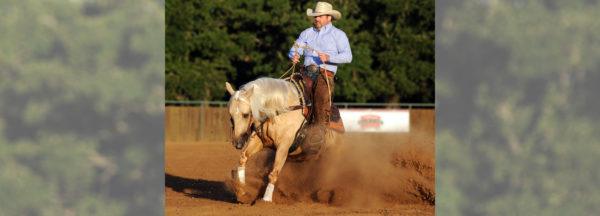Throwing Cold Water on a Common Myth

By Ritchie Industries
One of the more stubbornly enduring equine myths is the thought that giving cold (40 to 50 degrees F) or too much water to your sweaty horse after a heavy workout will cause colic.
“I don’t think anybody truly understands where this [myth] comes from, but there is no consensus among veterinarians about cold water causing colic,” said Fernanda Camargo, DVM, Ph.D., Associate Professor and Equine Extension Specialist at the College of Agriculture, Food and Environment at the University of Kentucky. “A possible perpetuation of this myth could be tied to the Thoroughbred industry and the various decisions trainers make when they instruct a hot walker to only allow recently raced horses to take small amounts of water while they cool down. However, those racehorses will go back to a stall with fresh water, where they can drink as much as they want.”
A working horse should always have access to as much water as they want. Horses will generally not drink more than their stomach can hold, which is typically 2 to 3 gallons. In basic physiological terms, thirst is a reflex controlled by the hypothalamus in the brain. The hypothalamus will increase thirst when there is a decrease in blood volume and an increase in the osmolality (more salts) in the blood. In other words, trust your horse to know when they need a drink of water.
“In my personal opinion, it is better to allow the sweaty horse to drink until he feels satiated instead of denying him water,” said Camargo. “If you don’t satiate the thirst reflex, it can be bypassed which could set the horse up for dehydration which actually can cause colic and other health concerns like overheating. If you look at equine athletes like endurance horses that run 100 plus miles, these horses are allowed to drink as much as they want at every single stop that they have because it is so important to rehydrate these horses. These horses are HOT; they’re cantering long distances and they don’t have problems drinking water. I have watched working ranch horses in Texas who are hard at it for eight hours in the hot weather and they are allowed to drink as much as they want, with no stomach cramps. In both these examples, the key is that the water is ambient temperature. Some vets believe that ice-cold water can cause stomach cramps, which can seem like colic to a horse owner. You know the old saying, ‘you can lead a horse to water, but you can’t make him drink’, well it’s the truth. You simply can’t make a horse drink more water than his body needs.”
Research backs this up. Studies by Schott et al. have demonstrated that horses do not drink beyond their stomach capacity in the first few minutes following intense exercise, so there is no need to wait until your horse has “cooled off.” Horses prefer fresh, clean and cool (50 to 68 degrees F) water in the summer but cold water from the hose or warmer ambient environmental temperature is also perfectly fine. The bottom line is, let your horses have free access to water before, during and immediately after heavy exercise.
For more information on keeping your horses hydrated this spring and summer, visit RitchieFount.com.
